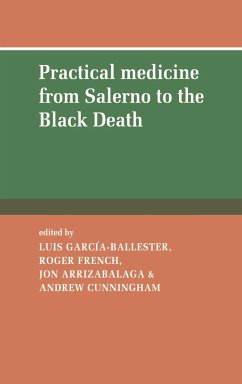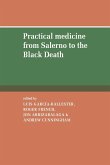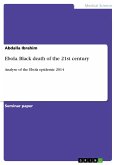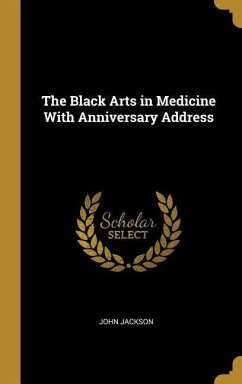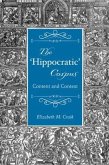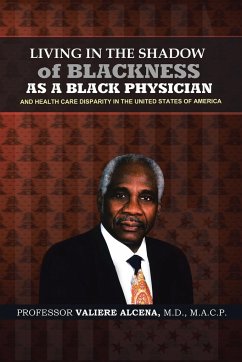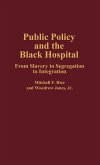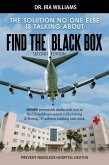From the eleventh century to the Black Death in 1348 Europe was economically vigorous and expanding, especially in Mediterranean societies. In this world of growing wealth new educational institutions were founded, the universities, and it was in these that a new form of medicine came to be taught and which widely influenced medical care throughout Europe. The essays in this collection focus on the practical aspects of medieval medicine, and among other issues they explore how far this new learned medicine percolated through to to the popular level; how the learned medical men understood and coped with plague; the theory and practice of medical astrology, and of bleeding (phlebotomy) for the cure and prevention of illness. Several essays deal with the development and interrelations of the nascent medical profession, and of Christian, Muslim and Jewish practioners one to another. Special emphasis is given to the practice of surgery and, the problems of recovering knowledge of a large proportion of medical care - that given by women - are also explored. This collection forms a companion volume to The Medical Renaissance of the Sixteenth Century (1985, edited by Andrew Wear, Roger French and I. M. Lonie), The Medical Revolution of the Seventeenth Century (1989, edited by Roger French and Andrew Wear), The Medical Enlightenment of the Eighteenth Century (1990, edited by Andrew cunningham and Roger French), and The Laboratory Revolution in Medicine (1992, edited by Andrew Cunningham and Perry Williams).
Table of contents:
Introduction: practical medicine from Salerno to the Black Death Luis García-Ballester; 1. Astrology in medical practice Roger French; 2. The science and practice of medicine in the thirteenth century according to Guglielmoa da Saliceto, Italian surgeon Jole Agrimi, and Chiara Crisciani; 3. How to write a Latin book on surgery: organizing principles and authorial devices in Gugleilmo da Saliceto and Dino del Garbo Nancy G. Siraisi; 4. Derivation and revulsion: the theory and practice of medieval phlebotomy Pedro Gil-Sotres; 5. Surgical texts and social contexts: physicians and surgeons in Paris, c. 1270 to 1430 Cornelius O'Boyle; 6. Medical practice in Paris in the first half of the fourteenth century Danielle Jacquart; 7. Royal surgeons and the value of medical learning: the Crown of Aragon, 1300-1350 Michael R. McVaugh; 8. Facing the Black Death: perceptions and reactions of university medical practitioners Jon Arrizabalaga; 9. John of Arderne and the Mediterranean tradition of scholastic surgery Peter Murray Jones; 10. Documenting medieval women's medical practice Monica H. Green; 11. A marginal learned medical world: Jewish, Muslim and Christian medical practioners, and the use of Arabic medical sources in late medieval Spain Luis García-Ballester.
The essays in this collection focus on the practical aspects of medieval medicine. They cover the period from the eleventh century to the Black Death, during which the first universities were founded and began to teach a new form of medicine which influenced medical care throughout Europe.
Essays on the practical aspects of medieval European medicine.
Hinweis: Dieser Artikel kann nur an eine deutsche Lieferadresse ausgeliefert werden.
Table of contents:
Introduction: practical medicine from Salerno to the Black Death Luis García-Ballester; 1. Astrology in medical practice Roger French; 2. The science and practice of medicine in the thirteenth century according to Guglielmoa da Saliceto, Italian surgeon Jole Agrimi, and Chiara Crisciani; 3. How to write a Latin book on surgery: organizing principles and authorial devices in Gugleilmo da Saliceto and Dino del Garbo Nancy G. Siraisi; 4. Derivation and revulsion: the theory and practice of medieval phlebotomy Pedro Gil-Sotres; 5. Surgical texts and social contexts: physicians and surgeons in Paris, c. 1270 to 1430 Cornelius O'Boyle; 6. Medical practice in Paris in the first half of the fourteenth century Danielle Jacquart; 7. Royal surgeons and the value of medical learning: the Crown of Aragon, 1300-1350 Michael R. McVaugh; 8. Facing the Black Death: perceptions and reactions of university medical practitioners Jon Arrizabalaga; 9. John of Arderne and the Mediterranean tradition of scholastic surgery Peter Murray Jones; 10. Documenting medieval women's medical practice Monica H. Green; 11. A marginal learned medical world: Jewish, Muslim and Christian medical practioners, and the use of Arabic medical sources in late medieval Spain Luis García-Ballester.
The essays in this collection focus on the practical aspects of medieval medicine. They cover the period from the eleventh century to the Black Death, during which the first universities were founded and began to teach a new form of medicine which influenced medical care throughout Europe.
Essays on the practical aspects of medieval European medicine.
Hinweis: Dieser Artikel kann nur an eine deutsche Lieferadresse ausgeliefert werden.

